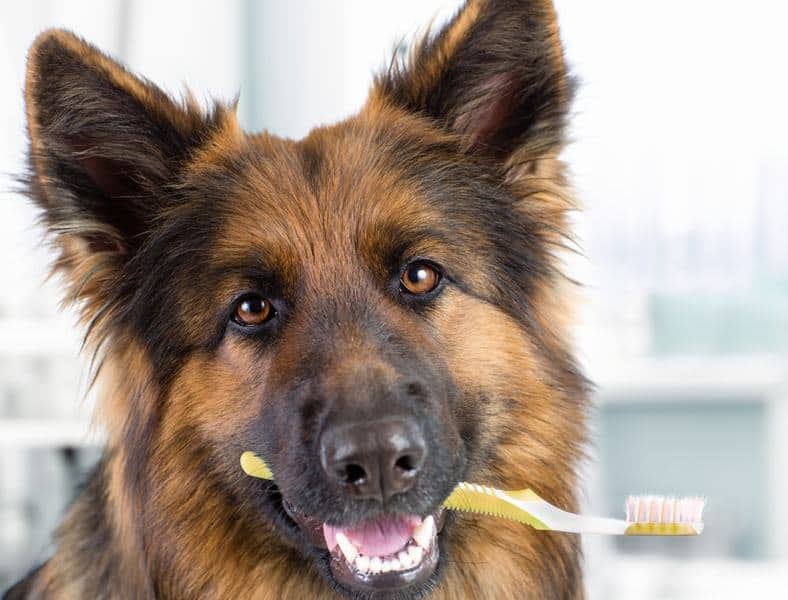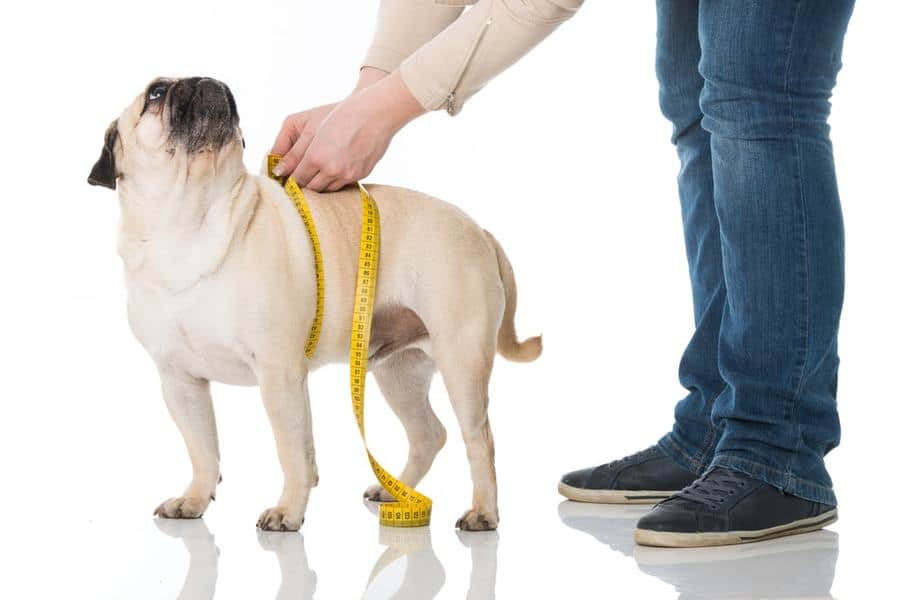“This post contains affiliate links, and I will be compensated if you make a purchase after clicking on my links.”
Canine cancer incidences are on the rise. With 6 million new cases each year, dog owners are looking for ways to best protect their pets against the dreadful disease. As the slogan says, prevention is better than cure.

Cancer is among the leading causes of dog’s death in both young and old age. According to recent research, one in ten dogs will die of cancer. It is very important to take caution and preventive measures before the disease attacks your pet. In this article, we will discuss various ways to prevent cancer in young dogs.
1. Chemical-free Environment
Chemicals pose very serious health risks, not only to humans but also dogs. Your dog should live in an environment that does not have chemicals that cause/increase the risk of cancer. If you’re a smoker, your pet should be far away when you’re smoking. When your dog inhales the smoke, the smoke can directly attack the sinuses and lungs and increase the risk of cancer.
Lawn treatments are another serious threat to your dog’s health. Herbicides, pesticides, dangerous household cleaners and other chemicals can get into the blood stream and increase the chances of cancer development. When your dog is playing, always ensure that he or she does not walk or play in such areas. If you suspect that your dog walked in such an area, wash paws immediately with chemical-free shampoo and water.

2. Oral hygiene
It is important to ensure that your dog’s teeth are always clean. This will drastically reduce the risk of oral cancers. Dogs whose teeth are brushed regularly are less likely to develop oral cancer compared to those that are not brushed. Brushing your dog’s teeth isn’t always fun, but it is necessary if you want your dog to grow healthy. Caring for your pet’s teeth is not a difficult task, especially if you love your pet! Here are some great tips for brushing teeth and supporting a healthy mouth and gums.
3. Reduce the use of tick and flea products
Almost all dog owners buy these products to destroy and keep away fleas and ticks. These products do help but it is important to reduce their usage to the absolute minimum needed for your dog’s weight. According to the latest research, many of these products contain fipronil, an ingredient that increases the risk of thyroid cancer and results in altered thyroid hormones. The company creates the impression that fipronil does not migrate to the body which is untrue.
Additionally, many flea and tick products contain either Permethrin or Pyriproxyfen. Permethrin has been tested and found to be a carcinogenic insecticide that causes lung cancer and liver tumors in animals. According to the research done by Centre for Public Integrity, Pyrethroids caused double fatalities in 2002-2007 compared to non-pyrethroid compounds. Look, instead, for natural flea and tick remedies.

4. Anti-inflammatory diet
Avoid feeding your dog anything that promotes inflammation. Recent research shows that cancer can be caused by chronic inflammation. Inflammation creates an environment for proliferation of abnormal body cells. Glucose in carbohydrates promotes the multiplication of cancer cells. When you’re feeding your dog, avoid food that contains a high percentage of carbohydrates. Avoid processed grains, starchy vegetables, potatoes, fruits with fructose among others. Don’t forget that all dry food contains some starch. All pet food contains some starch. It is good to buy foods that do not contain a lot of starch. Always buy a balanced diet for your dog. Pet grain-free food is good because it has small percentage of starch compared to other types of food.
Avoid feeding your dog with food with high concentration of omega 6 fatty acids or food too low in omega 3 fatty acids. According to the recent research, omega 6 fatty acids promotes/increases inflammation, but omega 3 fatty acids reverses the effect of omega 6. Learn to feed your dog with anti-inflammatory and anti-cancer food such as whole and raw food. The food should contain high protein percentage. Bones are also helpful and healthy to your pet.
5. Spay/Neuter after 18-months of age
Studies have shown that neutering/spaying your dog increases the risk of cancer when done before the age of 18 months. Studies show that there is a higher risk of cancer in dogs if they’re castrated before 18 months. The risk of bone cancer to neutered dogs is very high compared to those not castrated. If you want to spay your dog, don’t do it until it reaches the age of 18 months.

6. Don’t allow your dog to become overweight
High calorie intake increases the risk of cancer by development of cells including cancer cells. Restricting/minimizing the amount of calorie intake by your dog lowers the progression and tumor development.
In addition to calories, pay close attention to unknown and unpronounceable ingredients in your pet’s food. Many ingredients legally added to pet food are known to have carcinogenic, or cancer-causing, properties. Check this resource of pet food ingredients to understand exactly what’s in your pet’s food.
7. Early diagnosis and treatment
In order to provide the best chance of a long, healthy life, early diagnosis and treatment is absolutely vital. Pay close attention to the early warning signs and, if you have a dog that shows any health related complications, get a medical checkup and cancer screening as soon as possible. If cancer is found in its initial stage, it stands a much better chance of being treated successfully.
About the Author:
My name is Evelyn Valdez, creator of PlaywithMeow! I love all pets (especially cats) because they always make me happy and healthy. I want to connect with other pet lovers in the world to share experience in health and caring for pets.


















